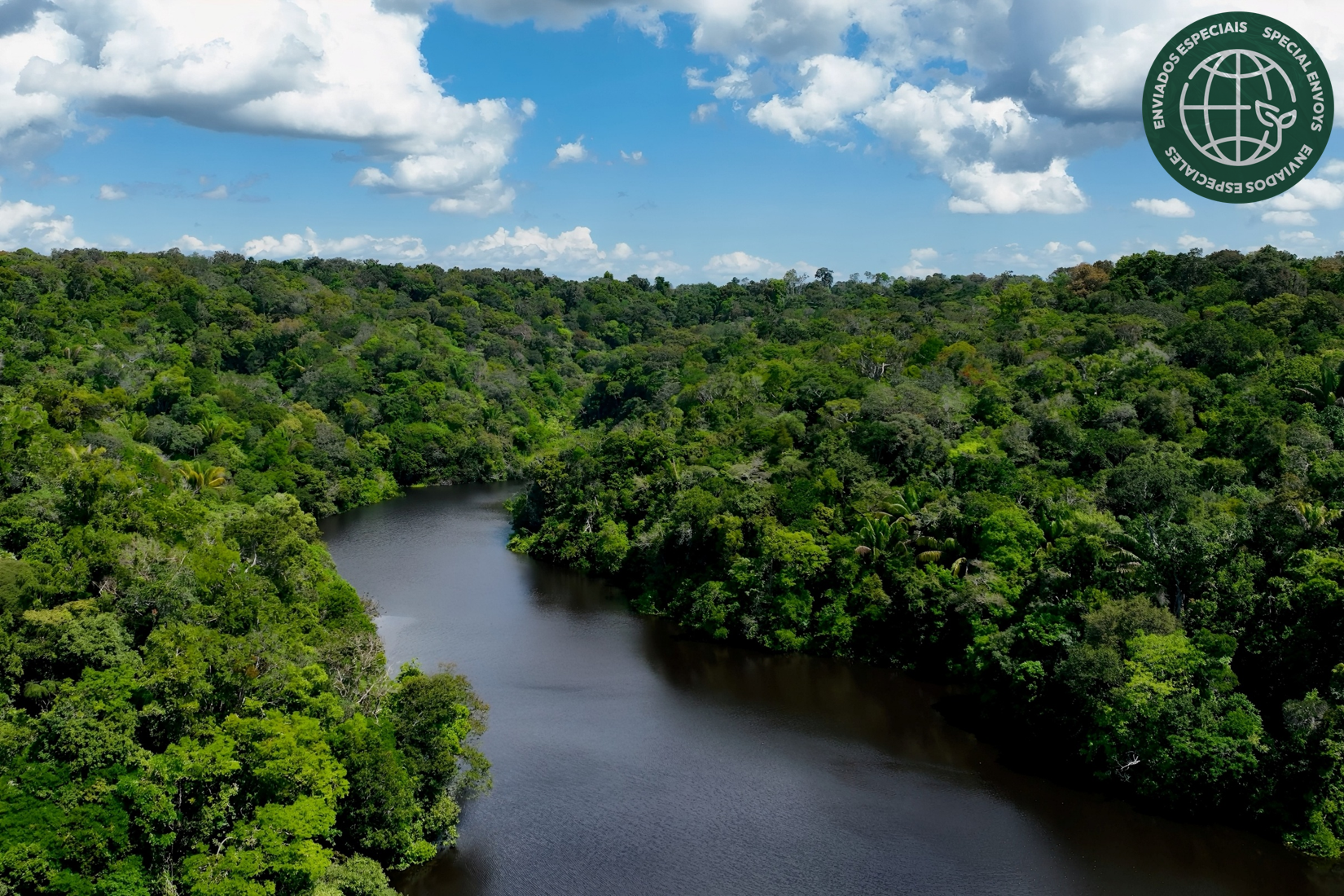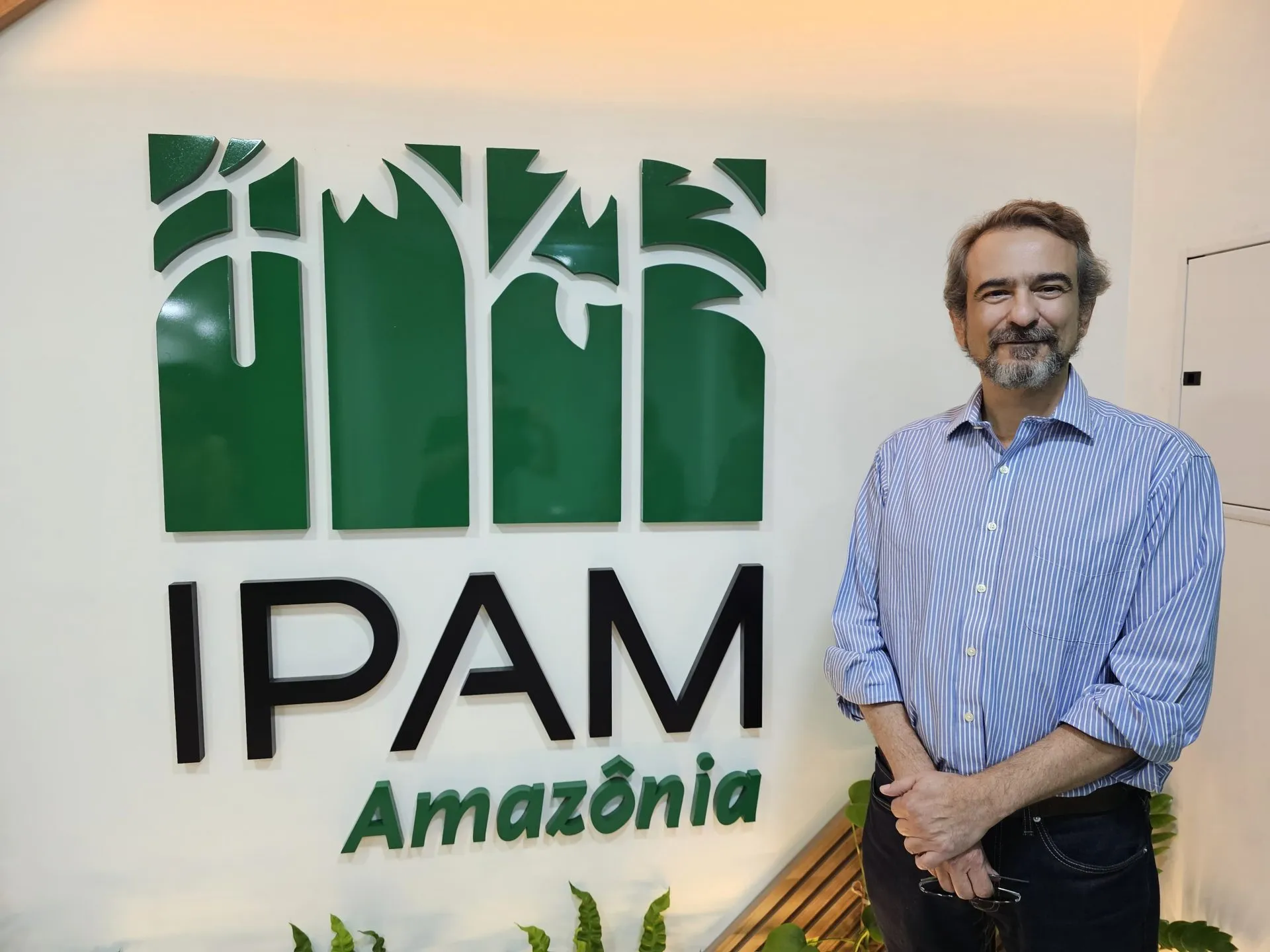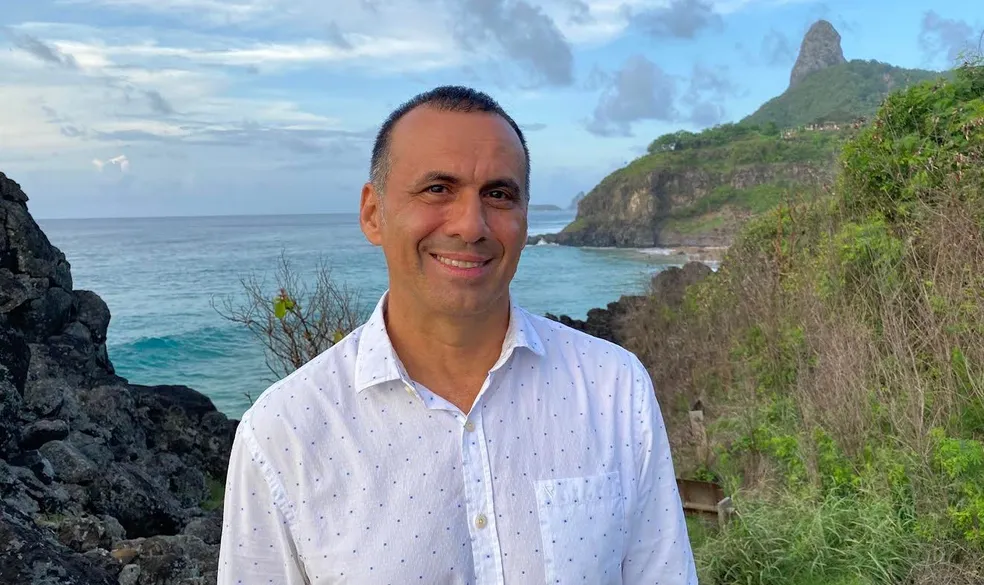Special Envoys Highlight Challenges and Opportunities for Climate Mitigation and Adaptation Ahead of COP30 in Belém
Special Envoys André Guimarães and Sérgio Xavier, representing Civil Society and the Brazilian Forum on Climate Change, discuss adaptation and mitigation efforts in the climate agenda and the push to phase out fossil fuels

By Rafaela Ferreira / COP30
Mitigation and adaptation to climate change will be central themes at COP30, to be held this November in Belém, Pará. In this episode of the Special Envoys series, André Guimarães, Envoy for Civil Society, and Sérgio Xavier, of the Brazilian Forum on Climate Change, outline the key challenges and opportunities tied to both strategies for confronting the climate crisis, while also underscoring the resistance to phasing out fossil fuels as part of a global energy transition.
The two strategies are complementary paths in tackling climate change. Mitigation focuses on reducing greenhouse gas emissions to slow global warming, typically through policies that promote clean energy transitions, forest conservation, and reductions in industrial pollution. Adaptation, by contrast, centers on measures to minimize the impacts of climate change, strengthening the resilience of communities and infrastructure against natural disasters such as floods, droughts, and storms.
Although the concepts differ, Sérgio Xavier, executive coordinator of the Brazilian Forum on Climate Change, stressed the importance of linking adaptation to mitigation. “We cannot only adapt to the consequences, the symptoms, the problems,” he said. “We must also confront the root causes. It is not enough to address the negative effects of the economy without also adapting its processes. The economic models that degrade the environment and emit enormous amounts of greenhouse gases must be transformed.”

André Guimarães, executive director of the Amazon Environmental Research Institute (IPAM), described what he calls a “double challenge.” “In some situations, we still have time to mitigate the impacts of climate change. If we act quickly, we can reduce the risk of fires and forest degradation,” he said. “It is possible to accelerate emissions reductions and, in some areas, stabilize the local climate, such as rainfall cycles. But the window is closing, and the costs are rising.”
He drew a sharp distinction: “It’s like the old adage: better to prevent than to remedy. Mitigation is prevention; adaptation is more costly, more complex, and slower—it is what we do when prevention is no longer an option. While opportunities for mitigation remain, in most cases we are already facing the necessity of adaptation, because limits have been surpassed.”
The COP30 Presidency’s fourth Letter outlines an Action Agenda structured around six thematic pillars that integrate mitigation, adaptation, and implementation. These include energy transition, sustainable management of forests, oceans, and biodiversity, transformation of food systems, urban and water resilience, and infrastructure—supported by financing, technology, and capacity building. The framework aims to drive systemic transformations and extend the reach of climate action beyond major urban centers, connecting global goals to local realities and underscoring Brazil’s commitment to climate integrity.
At the national level, Brazil’s AdaptaCidades program—part of the Climate Adaptation Plan—seeks to train states and municipalities to design and implement adaptation and resilience strategies, prioritizing vulnerable populations. The initiative is expected to operate in 260 municipalities, ten per state, reinforcing Brazil’s climate federalism by aligning national, state, and local governments to ensure effective climate policies across different territorial scales.
Climate financing

One of the most pressing issues in the climate debate is mobilizing resources for developing countries to implement mitigation and adaptation measures. At COP29 in Baku, nations set a target of raising $1.3 trillion annually for climate finance, a goal to be detailed in the “Baku-to-Belém Roadmap.”
The agreement stipulates that developed countries must “take the lead” in providing at least $300 billion annually through 2035 to support developing nations in cutting emissions and adapting to climate impacts. These resources are expected to come from diverse sources, including public, private, bilateral, multilateral, and alternative financing.
But the challenges extend beyond funding. Xavier underscored the need to fundamentally reshape a global economy built on extractive, linear models. “Nature functions in cycles, while the economy continues to consume and discard without space for regeneration. We need economic models that emulate life itself,” he said.
Guimarães added: “COP30 comes with enormous expectations regarding the Baku-to-Belém roadmap for $1.3 trillion. That expectation is strongest among countries with the fewest resources and the greatest risks—such as island nations. What we are facing today is the bill for 30 years of inaction.”
Fossil fuels
Mitigation is one of the strategies for responding to climate change, achieved through the reduction of emissions. Its long-term benefits are global. Once concentrations of greenhouse gases stabilize, surface temperatures are expected to level off within decades, though some additional warming may continue for centuries.
Globally, reliance on fossil fuels for heating, power generation, and transport remains one of the main drivers of global warming climate change. Many nations are adopting policies that combine economic instruments, regulatory measures, and political processes to cut energy-sector emissions.
Guimarães emphasized that civil society organizations consistently point to energy transition as a top priority. “Every organization I have spoken with agrees: the first step must be charting an exit for fossil fuels. We need to leave Belém with a clear horizon,” he said.
Brazil presents a particular case. The share of renewables in the country’s Domestic Energy Supply rose to 49.1 percent in 2023, up from 45 percent in 2021, according to the 2024 National Energy Balance report produced by the Energy Research Company (EPE) in partnership with the Ministry of Mines and Energy (MME). “Brazil is uniquely positioned to lead by example, showing that it is possible to cut emissions while sustaining economic growth and food security,” Guimarães said.
For Xavier, the transition must also reduce inequalities. “This process warrants planning, public policy, and international agreements to ensure countries move together. Yet the sectors that profit most from fossil fuels are resisting a rapid shift. Instead of phasing out oil, they push to drill new wells and expand production. What we need is a global plan to migrate to alternative sources,” he warned.
The Amazon as a symbol of leadership
Holding COP30 in Belém carries special significance: the Amazon is the world’s largest tropical biome, critical to regulating rainfall across South America and storing vast amounts of carbon. For Xavier, Brazil’s message to the world must be that economies align with ecosystems and biomes. “We must build value chains that keep forests alive, respect local cultures, and regenerate natural resources,” he said.
Guimarães added that the Amazon underscores the link between conservation and food security. “Half of tropical agriculture depends on the forest to sustain natural irrigation. Protecting nature is essential to ensuring affordable food for billions. Global food security is intrinsically tied to safeguarding forests and oceans.”
Both envoys highlighted the singular nature of COP30. “Belém is a real city, with its beauty and its challenges. This is the COP of truth,” Guimarães said. Xavier added: “It is time for a global mutirão—a collective effort—that unites territories, communities, and governments around a new regenerative economy.”
With its history of environmental leadership and one of the cleanest energy mixes in the world, Brazil will lead COP30 with the opportunity to prove that development and sustainability can advance together. Expectations are that Belém will mark not only a milestone in international negotiations, but also a catalyst for global mobilization around integrated solutions for climate mitigation and adaptation.
Translation: Tadeu Azevedo (POET/UFC)
Proofreading: Michel Emmanuel Félix François (POET/UFC)
